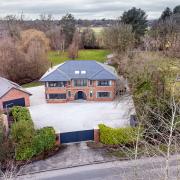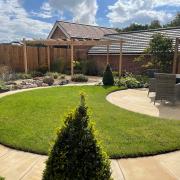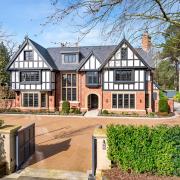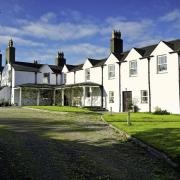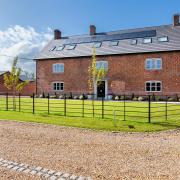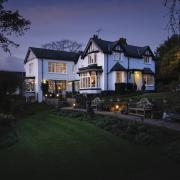February: the month for large bouquets, romantic dinners, proposals – and wedding planning.

Whilst the big day used to be about booking the church and then a reception nearby at home, in a hotel or village hall, in current times competition for venues is fierce: large private mansions, country house hotels, converted barns, National Trust houses… a bewildering array of choice, providing the perfect setting for you to have your ceremony, reception and even the first few days of your honeymoon all in one place.
Those who run wedding venues are constantly trying to keep their offering fresh, unique and romantic – yet flexible, streamlined and practical. It is a wonderful thing to be involved in such a special day – but, if you are the owner of a glorious house and are thinking of turning it into a wedding venue, quite apart from the hours of work involved in keeping the stunning buildings, interiors, gardens and grounds looking their best all year round, you might not be aware of all the work behind the scenes that causes the tension headaches.
By this, we don’t mean keeping the bride stress-free and dealing with the family politics that inevitably come as part of a wedding. We mean the “boring bits” that our Estate Management team can help you with: licences for the ceremonies, Public Liability Insurance documents, Health & Safety procedures and Risk Assessments. Depending on your venue, you might need special arrangements for driving routes and parking and therefore, appropriate and removable signage; if your venue is a private house, you will need to make sure that the neighbours are on side and that noise levels are managed (as far as possible)! If you are the sort of location where the matrimonial party can put up a marquee in the grounds and “build” their own wedding, you will need to make sure that they have access to power and water, and that you have checked out (or better still, know of) all the contractors and that you see all their PLI and Risk Assessment documents. Make sure all suppliers know where to drop off, when to pick up and are aware that they must not drive over the manicured lawns as a shortcut! You might end up having a list of rules for the contractors – and also one for Brides & Grooms.

You will have to have annual tree surveys done where branches encroach into marquee sites – and, if there happens to be an inclement storm before an event, it’s always worth getting branches checked again. You will need wet weather plans in place for the days in the summer that are not pristine blue skies and dawn to dusk sunshine. You need to keep on top of pot-holes and pruning, lawn mowing and landscaping, outside lighting and indoor plumbing, housekeeping and central heating, gravel creep and brides who weep! You will have to be on hand to move furniture, organise parking patrols, and be able to turn your hand to everything from babies to buttonholes… in a previous job, I did all this and more: I learnt to carry around an emergency pack with me, containing tea bags, tissues, safety pins and chocolate.
The more weddings you plan to have, the more advisable it is to meet suppliers before events. It can really help you and the wedding parties if they are aware of your expectations and of your “do’s and don’ts”. I remember instructing suppliers over the phone about where they could and could not unload, and being confident that they had listened to every word – only to see them driving straight over the pristine green lawn, leaving tyre tracks that were then visible for the rest of the wedding season! Getting on well with the suppliers, and knowing that you can trust them to respect your property, can eradicate a whole heap of organisational stress.

Your aim will always be to remain accommodating and flexible for your brides and grooms, but there is a need for “do’s & don’ts” to be in place: who deals with litter at the end; that portaloos must be hired if your plumbing cannot cope; whether dogs are allowed anywhere/everywhere; what kind of confetti they can use; can they have fireworks or Chinese lanterns; where can people sleep if they suddenly find themselves unable to drive – anywhere?... Ironically, flexibility needs firm ground rules.
Remember: once the happy couple depart in a cloud of goodwill and confetti, you still need to put your feet up with everything back in its rightful place with the minimum of fuss... it’s been their dream, but it’s still your home.
Strutt & Parker, 37 Lower Bridge Street, Chester CH1 1RS 01244 354888






